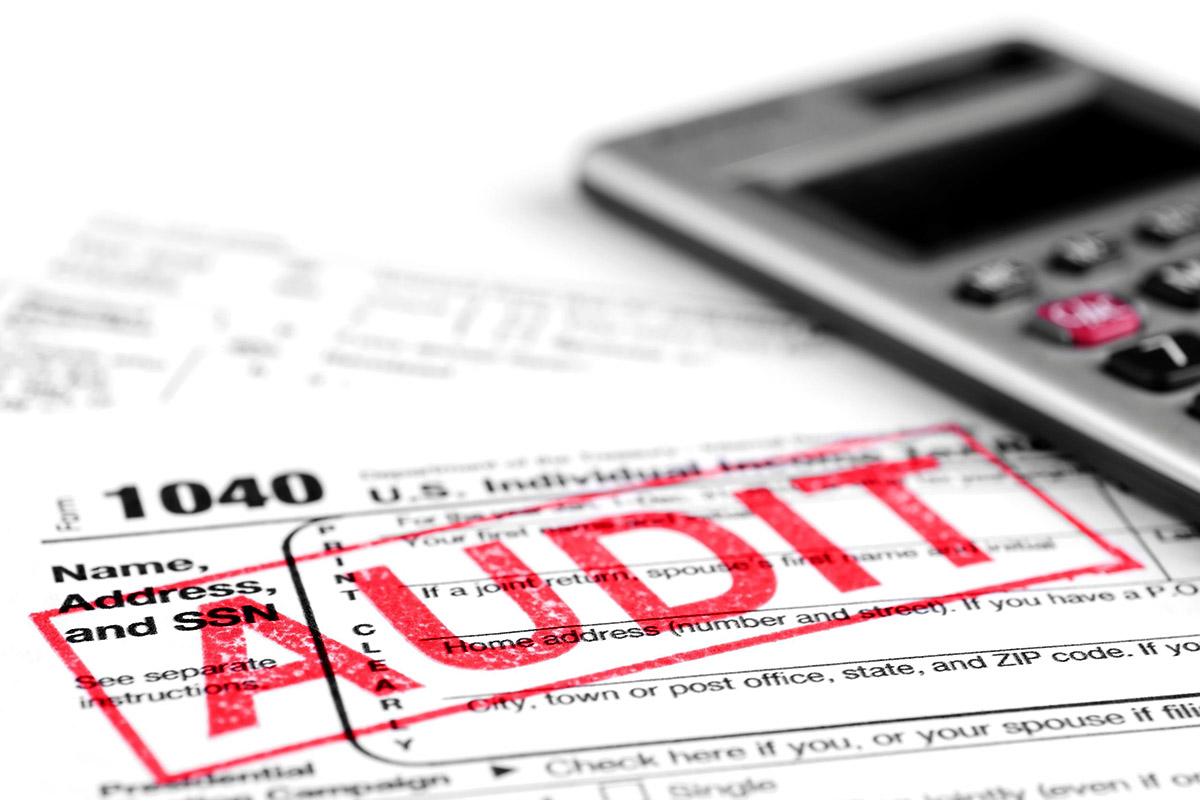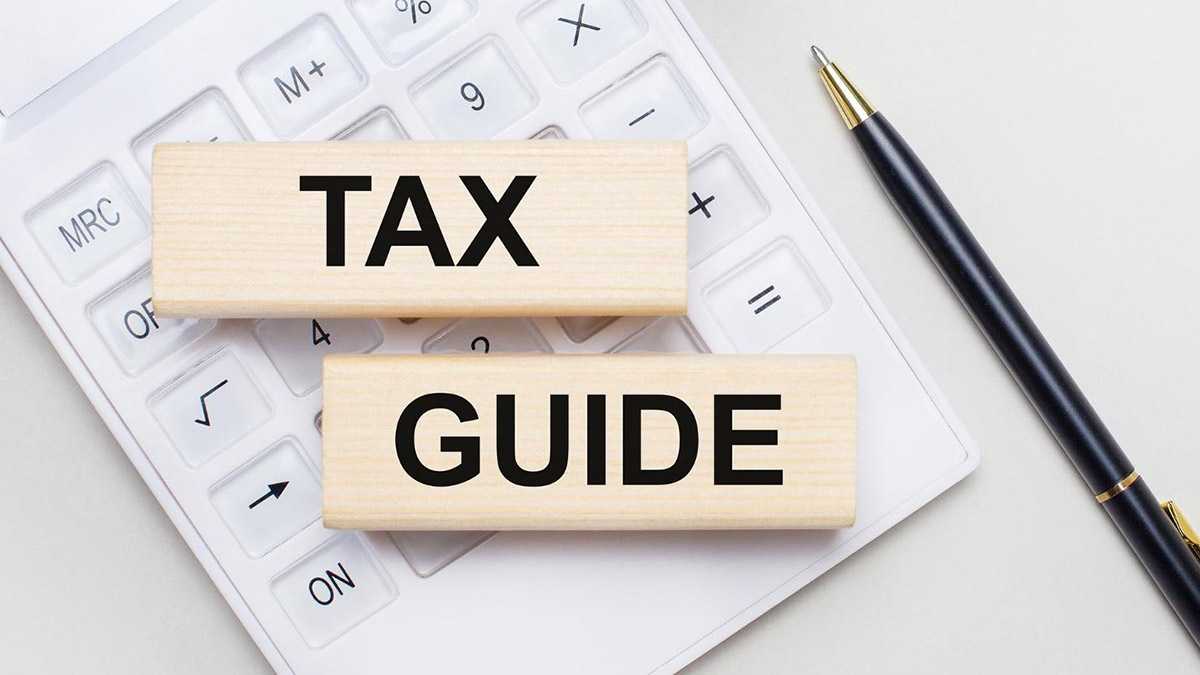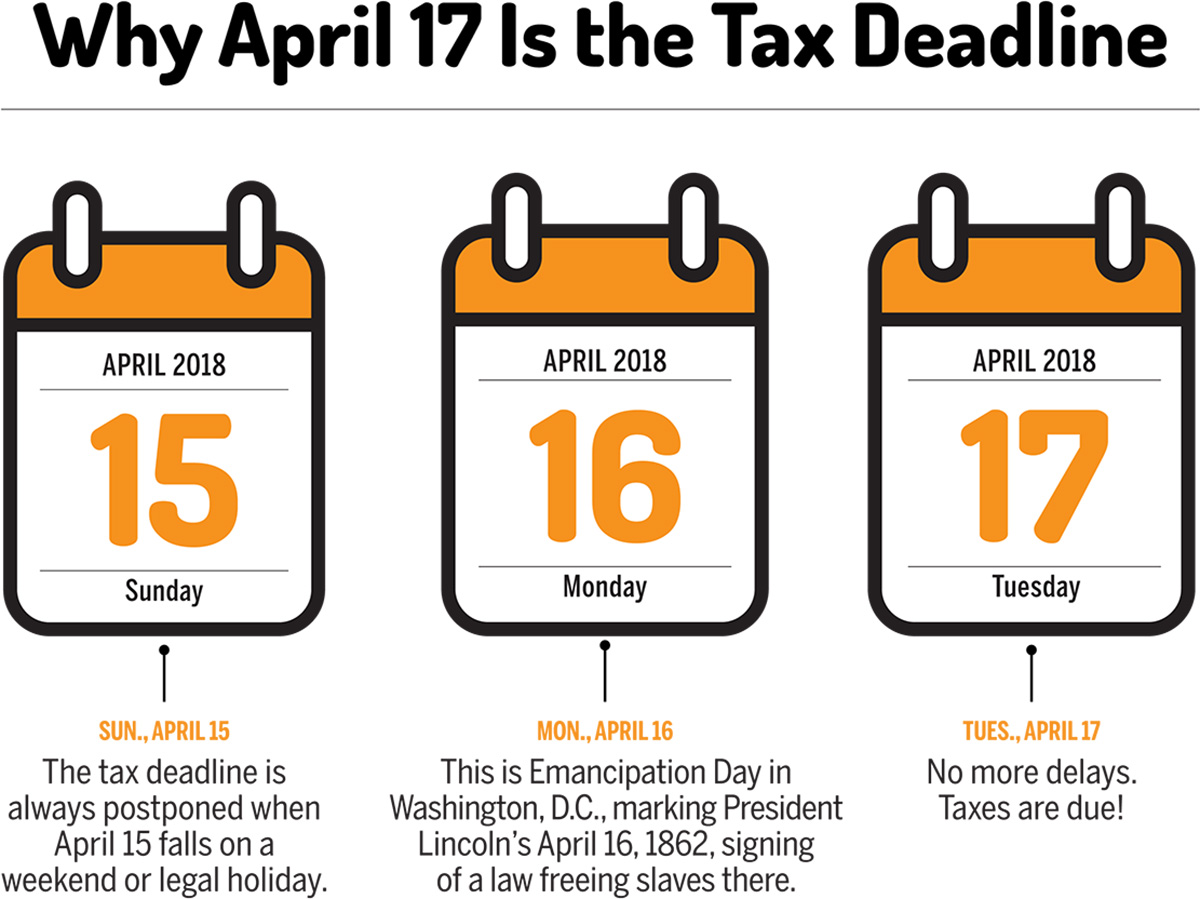Home>Finance>What Happens If You File A Federal Tax Return Twice?


Finance
What Happens If You File A Federal Tax Return Twice?
Published: October 28, 2023
Filing a federal tax return twice can lead to penalties and audits. Understand the consequences and avoid potential financial troubles.
(Many of the links in this article redirect to a specific reviewed product. Your purchase of these products through affiliate links helps to generate commission for LiveWell, at no extra cost. Learn more)
Table of Contents
Introduction
When it comes to filing your federal tax return, accuracy is crucial. Each year, millions of taxpayers diligently gather their financial documents, fill out their forms, and submit their returns to the Internal Revenue Service (IRS). However, what happens if you accidentally file your federal tax return twice?
Mistakes happen, and it’s not uncommon for individuals to unintentionally submit duplicate tax returns. Whether it’s a result of a computer glitch, confusion, or simply overlooking a previous submission, filing your federal tax return twice can have consequences.
In this article, we will explore the potential ramifications of filing a federal tax return twice. We’ll delve into the penalties you may face, the legal issues that can arise, and how to resolve this mistake if you find yourself in such a situation.
It’s important to note that this article is for informational purposes only and should not be considered as legal or financial advice. If you have specific concerns about your taxes, it is recommended to consult with a qualified tax professional.
Understanding the Consequences of Filing a Federal Tax Return Twice
Filing a federal tax return twice can lead to various consequences that can significantly impact your financial situation. Understanding these consequences is essential to avoid any unnecessary penalties or legal issues.
One of the main consequences of filing a federal tax return twice is the potential delay in processing your return. When the IRS receives multiple tax returns with the same Social Security number, they will need to resolve the duplication issue before processing your return. This can lead to a significant delay in receiving any refunds or processing any payments you may owe.
Furthermore, filing a federal tax return twice can trigger an IRS audit. The IRS may flag your account for potential fraud or suspicious activity if they discover duplicate filings. This can result in a lengthy and intrusive audit process, requiring you to provide additional documentation and explanations for the duplication.
In addition to delays and possible audits, filing a federal tax return twice can also result in penalties. The IRS has the authority to impose penalties for filing inaccurate or fraudulent returns. While the specific penalties can vary depending on the circumstances, it’s important to note that intentional duplication of a tax return can be seen as a fraudulent act.
The penalties for filing a federal tax return twice can include fines, interest on unpaid taxes, and even criminal charges in severe cases of tax fraud. It’s crucial to understand that these penalties can have long-lasting financial and legal consequences.
Lastly, duplicating a federal tax return can raise suspicions with other government agencies, such as the Social Security Administration and the Department of Homeland Security. This can lead to further investigations and potential legal issues beyond just your tax situation.
Overall, it is essential to recognize the potential consequences of filing a federal tax return twice. Taking proactive steps to avoid this error and addressing the situation promptly if it does occur can help mitigate any negative impact on your finances and legal standing.
Penalties for Filing a Federal Tax Return Twice
When you file a federal tax return twice, you expose yourself to various penalties imposed by the Internal Revenue Service (IRS). These penalties can have significant financial implications and potential legal consequences. It is crucial to understand the potential penalties you may face in order to avoid them if you accidentally file your return twice.
One of the primary penalties for filing a federal tax return twice is the imposition of fines. The IRS can impose a penalty of up to $550 for each duplicate return submitted. This fine can quickly add up if you unknowingly file multiple duplicates. It’s important to note that this penalty applies regardless of whether the duplication was intentional or an innocent mistake.
In addition to fines, the IRS can also assess interest on any unpaid taxes resulting from the duplicated returns. If you receive a refund based on one of the duplicate returns and fail to return the excess amount promptly, you may also be liable for interest on the overpayment. The interest rate charged by the IRS is typically calculated based on the federal short-term rate, resulting in additional financial consequences.
Furthermore, filing a federal tax return twice can potentially lead to criminal charges in severe cases of tax fraud. While not every instance of duplicate filing will result in criminal charges, intentional and repeated acts of tax fraud can be viewed as a criminal offense. Convictions for tax fraud can result in significant fines and even imprisonment.
It’s important to note that penalties can vary depending on the circumstances of the duplicate filing. If you can demonstrate that the duplication was accidental and promptly rectify the situation, the IRS may show leniency and reduce the penalties imposed. However, intentionally filing duplicate returns will likely result in harsher penalties.
To avoid these penalties, it’s crucial to take preventive measures to ensure you only file your federal tax return once. Double-check your submission before sending it to the IRS to avoid any unnecessary complications and penalties.
If you do realize that you have filed a federal tax return twice, it’s recommended to address the issue immediately. Contact the IRS and explain the situation, providing details about the duplicated submission. Taking proactive steps to rectify the situation and cooperate with the IRS can help reduce the penalties or prevent further legal consequences.
Overall, the penalties for filing a federal tax return twice can range from fines to interest charges and, in severe cases, criminal charges. It is essential to understand these potential penalties and take appropriate measures to avoid or address them, ensuring compliance with tax regulations and minimizing any negative financial or legal impact.
Potential Legal Issues
Filing a federal tax return twice can potentially lead to legal issues that go beyond financial penalties. Understanding these potential legal consequences is crucial to ensure compliance with tax laws and regulations and to avoid any unnecessary legal complications.
One of the primary legal issues that can arise from filing a federal tax return twice is the possibility of being accused of tax fraud. The intentional duplication of a tax return can be viewed as an act of fraud, as it suggests an attempt to deceive the IRS and potentially obtain financial benefits improperly. Accusations of tax fraud can result in criminal charges, substantial fines, and even imprisonment in severe cases.
Another legal issue that can arise from filing a federal tax return twice is the potential damage to your credibility and reputation. Being accused of tax fraud or engaging in suspicious tax practices can tarnish your reputation and may have long-lasting consequences both personally and professionally. This can affect your ability to secure loans, obtain certain licenses or certifications, or even impact your employment opportunities.
Additionally, filing a federal tax return twice can attract attention from other government agencies beyond the IRS. The duplication may raise suspicions with agencies such as the Social Security Administration or the Department of Homeland Security, potentially triggering further investigations and legal issues beyond your tax situation.
It is important to note that unintentional duplicate filings can still result in legal issues, especially if the duplication is a recurring occurrence. While the IRS may be more lenient in these situations, repeatedly filing duplicate returns can bring into question your level of competence or intent, potentially leading to legal scrutiny.
To avoid potential legal issues, it is crucial to take proactive measures to prevent the filing of duplicate tax returns. Double-check your submissions, ensure accuracy, and maintain organized records to avoid any unintentional duplication. If you do realize that you have filed a tax return twice, it is recommended to promptly address the issue with the IRS and take the necessary steps to rectify the situation.
If you find yourself facing potential legal issues related to filing a federal tax return twice, it is highly advisable to consult with a qualified tax attorney. Tax attorneys have the expertise and knowledge to guide you through the legal process, provide appropriate advice, and help you navigate any legal challenges that may arise.
Remember, this article is for informational purposes only and should not be considered legal advice. Consult with a professional to address your specific legal concerns.
Proceeding with Multiple Tax Return Filings
While it is strongly advised against filing multiple tax returns, there are rare situations where individuals may find themselves in such a predicament. If you have accidentally filed a federal tax return twice, it is important to understand how to proceed to rectify the situation and minimize any potential negative consequences.
The first step when realizing you have filed multiple tax returns is to take immediate action. Contact the Internal Revenue Service (IRS) as soon as possible to inform them about the duplication and seek guidance on the appropriate course of action. The IRS has dedicated customer service representatives who can assist you in resolving the issue.
When contacting the IRS, be prepared to provide specific details about both tax return filings. This includes information such as the confirmation number or timestamp of each filing, the tax year in question, and any pertinent documentation or correspondence related to the mistaken duplication.
The IRS will then guide you on how to proceed based on the specifics of your situation. They may instruct you to provide additional information, such as submitting an amended return with an explanation of the duplication or providing supporting documentation. They may also require you to return any refund received based on the duplicate return.
It is crucial to cooperate fully with the IRS throughout the process. Promptly provide any requested information or documentation and adhere to any deadlines given. Cooperation and transparency can help mitigate potential penalties and demonstrate your willingness to rectify the mistake.
Keep in mind that every situation is unique, and the IRS’s guidance will depend on the specific details of your case. It is important to follow their instructions carefully and seek professional advice as needed.
Additionally, if you are using a tax professional or software to file your returns, inform them about the duplicate filing immediately. They can provide guidance and potentially assist you in resolving the situation.
Lastly, take preventive measures to avoid future instances of filing multiple tax returns. This includes implementing a system to track your filings, double-checking your submissions before sending them, and keeping organized records of your tax documents and correspondence.
By promptly addressing the issue, cooperating with the IRS, and implementing preventive measures, you can rectify the situation and mitigate any potential negative consequences. Remember, seeking professional advice, such as consulting with a tax attorney, can provide further guidance and assurance in thorough resolution.
Resolving the Issue of Filing Twice
Discovering that you have filed a federal tax return twice can be a stressful situation. However, there are steps you can take to resolve the issue and minimize any potential negative consequences. Follow these guidelines to address the mistake and rectify the situation:
1. Contact the IRS: As soon as you realize that you have filed your federal tax return twice, it’s crucial to contact the Internal Revenue Service (IRS) promptly. You can reach out to the IRS helpline or contact them through other available channels. Inform them about the duplicate filing and provide them with specific details, such as confirmation numbers, dates of submission, and any relevant documentation.
2. Cooperate with the IRS: The IRS will provide instructions on how to proceed based on your situation. It’s important to cooperate fully and promptly provide any additional information or documentation they request. This may include submitting an amended return, returning any duplicate refunds received, or providing explanations for the mistake.
3. Seek Professional Advice: If you are unsure about how to navigate the process or if you anticipate potential legal consequences, it may be beneficial to consult with a qualified tax professional or tax attorney. They can provide you with personalized advice and guidance based on the specifics of your case, ensuring that you take the appropriate steps to resolve the issue.
4. Be Transparent: When communicating with the IRS, it’s important to be transparent and provide all requested information honestly and accurately. Transparency demonstrates your willingness to rectify the mistake and can help establish a cooperative relationship with the IRS.
5. Implement Preventive Measures: To avoid future occurrences of filing multiple tax returns, implement preventive measures. This includes double-checking your submissions before sending them, keeping organized records of your tax documents and correspondence, and implementing a system to track your filings. Being proactive in preventing duplicate filings can help alleviate any potential future issues.
6. Stay Informed: Keep yourself updated on any developments regarding your case. Stay in touch with the IRS, be aware of any relevant deadlines or requirements, and promptly respond to any further inquiries or requests for information.
Remember, resolving the issue of filing twice requires your timely action and full cooperation with the IRS. By taking the necessary steps and seeking professional advice if needed, you can rectify the situation and minimize any potential negative consequences.
Conclusion
Filing a federal tax return twice can have serious consequences, including delays in processing, audits, penalties, and potential legal issues. It is crucial to understand the potential ramifications and take appropriate action to rectify the situation as soon as possible.
If you find yourself in the unfortunate circumstance of accidentally filing a federal tax return twice, the first step is to contact the Internal Revenue Service (IRS) and inform them about the duplication. Cooperate fully with the IRS, providing any requested information or documentation, and following their instructions carefully.
Seeking professional advice, such as consulting with a tax attorney, can provide additional guidance and ensure that you take the appropriate steps to resolve the issue. They can help navigate any potential legal consequences and assist you in dealing effectively with the IRS.
To prevent future instances of filing multiple tax returns, implement preventive measures. Double-check your submissions, keep organized records of your tax documents and correspondence, and establish systems to track your filings. Being proactive in avoiding duplicate filings can help mitigate any potential future issues.
It is crucial to handle the situation promptly and transparently. Cooperating with the IRS and demonstrating your willingness to rectify the mistake can help mitigate any potential penalties and legal issues that may arise.
Remember, the information provided in this article is for informational purposes only and should not be considered legal or financial advice. If you have specific concerns about your taxes, it is recommended to consult with a qualified tax professional or attorney.
By understanding the consequences of filing a federal tax return twice, taking timely action, and addressing the situation responsibly, you can rectify the mistake and minimize any potential negative impact on your finances and legal standing.














